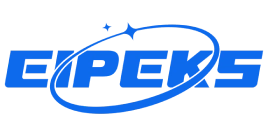When searching for a software product development company, we face numerous options. Finding the right partner that meets your business needs is crucial, whether you’re a startup or an established enterprise. Choosing the right development company can provide strong support for your project’s success. This blog will offer a comprehensive guide to help you evaluate and select the best software product development company, ensuring your project runs smoothly and achieves the desired results.
Why Choosing the Right Development Company is Important
Selecting the right software product development company is not just about completing a project; it’s about ensuring the quality, efficiency, and market performance of the final product. A wrong choice can lead to project delays, cost overruns, and even a product that doesn’t meet expectations. Therefore, understanding how to choose the right development partner is essential.
The Role of a Software Product Development Company
Providing Professional Technical Support
A software product development company typically has an experienced development team that can provide professional technical support for your project. From requirement analysis to product launch, each phase requires technical knowledge and expertise. The development team is familiar with various tools and frameworks, can quickly address technical challenges, and offers optimal solutions for your product. They also conduct regular code reviews and performance optimizations to ensure software quality and efficiency.
Project Management and Coordination
A development company not only provides technical support but also manages and coordinates the project. From scheduling and resource allocation to team collaboration, they ensure the project stays on track. Project managers create detailed plans, set key milestones, and regularly communicate progress with clients, adjusting strategies as needed. They often use agile development methods to ensure efficient team operation and quick response to changing requirements.
Risk Control and Response
In the development process, risks and challenges are inevitable. A good development company can foresee these issues and develop corresponding measures to minimize risks. They conduct comprehensive risk assessments, identify potential problems, and create detailed contingency plans. Whether it’s technical, market, or operational risks, they have the experience and professional teams to handle them, ensuring the project progresses smoothly. They also perform regular risk monitoring and evaluations, addressing issues promptly to ensure timely and quality project delivery.
How to Evaluate the Technical Capability of a Development Company
Reviewing Past Projects
Examining a company’s past successful projects is an effective way to assess their technical capability. These case studies can reveal their development style, technical proficiency, and ability to handle complex issues. When reviewing, you can pay attention to the following points:
- Project Size and Complexity: Have they managed projects similar in scale to yours and successfully solved complex problems?
- Client Feedback: What do previous clients say about their technical execution and project management?
- Project Outcomes: Were projects delivered on time, and did they meet expected functionality and performance goals?
Technology Stack and Tools
Understanding the technology stack and tools used by a development company is crucial. Do they know the latest programming languages and frameworks necessary for your project? When evaluating, you can consider the following aspects:
- Technology Updates: Do they stay current with technological trends, using the latest tools and techniques to enhance development efficiency and product quality?
- Technical Breadth and Depth: Do they have a wide range of technical capabilities and deep expertise in specific areas relevant to your project?
- Tool Usage: Do they use advanced development tools, project management software, and collaboration platforms to improve efficiency and quality control?
Development Processes and Methods
The development processes and methods of a company reflect their technical capability and efficiency. Do they use agile development? Do they have thorough quality control and testing procedures? When evaluating, you can focus on the following points:
- Development Methods: Do they use agile development, Scrum, or other efficient methods to ensure rapid iteration and responsiveness to changes?
- Quality Control: Do they have strict code reviews, automated testing, and continuous integration processes to ensure code quality and project stability?
- Project Management: Do they have mature processes for requirement management, progress tracking, risk management, and client communication to ensure projects stay on track?
Economic Cost and Budget Control
Project Quotes and Contracts
Project quotes and contract terms are crucial when choosing a development company. You need to ensure the following points:
- Transparent and Reasonable Quotes: The company’s quote should be clear, covering all project phases and providing a detailed breakdown based on specific project requirements.
- Clear Contract Terms and Payment Methods: Contracts should specify all costs, including phased payments, additional services, etc. Payment methods should be practical and outline timelines and conditions clearly.
Cost-Benefit Analysis
Besides price, consider cost-effectiveness. Key factors include:
- Service Quality: High-quality services often result in long-term benefits like reduced maintenance costs and better user experiences.
- Development Speed: Quick delivery can accelerate product launch, allowing for earlier revenue generation.
- Long-term Value: Consider the overall project value and cost, not just initial development expenses.
Hidden Costs and Risks
Be aware of potential hidden costs and risks that can affect the overall budget:
- Project Delays: Delays can incur additional costs like extra manpower or missed market opportunities.
- Maintenance Costs: Certain development choices may increase future maintenance costs, like frequent bug fixes due to poor code quality.
Customer Service and Communication
Communication Channels and Methods
Choosing a development company with clear and responsive communication is crucial. Whether through face-to-face meetings, phone calls, or online communication, ensure information is conveyed clearly and promptly. Good communication can minimize misunderstandings, enhance efficiency, and ensure smooth project progress.
Project Progress Reporting
Regular project progress reports are vital for maintaining good communication. They allow you to monitor the project’s status, identify potential issues, and address them promptly, ensuring the project stays on track. Reports should cover completed tasks, challenges, solutions, and plans for the next phase to align all stakeholders’ understanding and expectations.
After-Sales Support and Service
After-sales support and service are equally important. Ensure the company can provide necessary technical support and maintenance after project completion, safeguarding your product. This includes fixing bugs or technical issues, responding to user feedback, and offering updates or repairs to ensure product stability and user satisfaction.
Client Reviews and Reputation
Choosing a responsive and reputable development company is crucial. Online reviews and ratings can offer insights into their service and product quality. These reviews often reflect the company’s true performance, helping you make informed decisions. Request case studies and references from the company, and engage with past clients to understand their work quality, project management capabilities, and client relations. Additionally, observing their social media presence and industry reputation can help you assess their credibility and standing.
Technical Support and Training
Technical Support and Maintenance
Long-term technical support and maintenance services from a development company ensure your product runs smoothly post-launch, effectively addressing technical issues and challenges. Long-term support includes regular system updates and patch releases to maintain system security and stability. Maintenance services involve monitoring system performance, troubleshooting, and problem-solving to maintain consistent user experience.
Training and Knowledge Transfer
Ensuring the development company provides training and knowledge transfer for your team is crucial for project success. Effective training helps your team quickly grasp and use new systems or features, enhancing efficiency and accuracy. Knowledge transfer ensures your team understands the system architecture and design principles, aiding in future maintenance and optimization.
Documentation and Materials
Comprehensive documentation and materials from the development company are vital for long-term project operation and maintenance. These documents should include system architecture diagrams, database designs, API documentation, and user manuals, enabling your team to independently maintain, upgrade, and expand post-delivery. Clear documentation aids in understanding system components and functionalities, offering valuable references for problem-solving and managing changes.
Project Management and Quality Control
Project Management Methods
Understanding a development company’s project management methods and tools is crucial, as they directly impact project execution efficiency and quality. A good company should have clear project plans and management processes to ensure on-time delivery and goal achievement. They should effectively allocate resources, set detailed milestones and schedules, and implement effective risk management strategies. Knowing their project management methods helps ensure transparency and control during development.
Quality Control and Testing
A development company’s quality control and testing processes are critical to the final product’s quality and stability. Good companies have robust quality control systems and stringent testing mechanisms to detect and fix potential issues before delivery. They conduct comprehensive functional, performance, and security testing to ensure the product operates stably under various scenarios and meets functional requirements. Effective quality control and testing enhance product reliability and user satisfaction, reducing maintenance costs.
Continuous Improvement and Optimization
Excellent development companies not only meet current project needs but also seek continuous improvement and optimization. They regularly evaluate product performance and user feedback, identify potential improvements, and iteratively develop and innovate to enhance functionality and performance. Continuous improvement helps your product stay competitive, improving user experience and market competitiveness over time.
Conclusion and Suggestion
Choosing the right software product development company is crucial for business success. This guide helps you evaluate and select a development company, ensuring smooth project progress and successful delivery. We hope you find the best development partner to drive your business growth.




